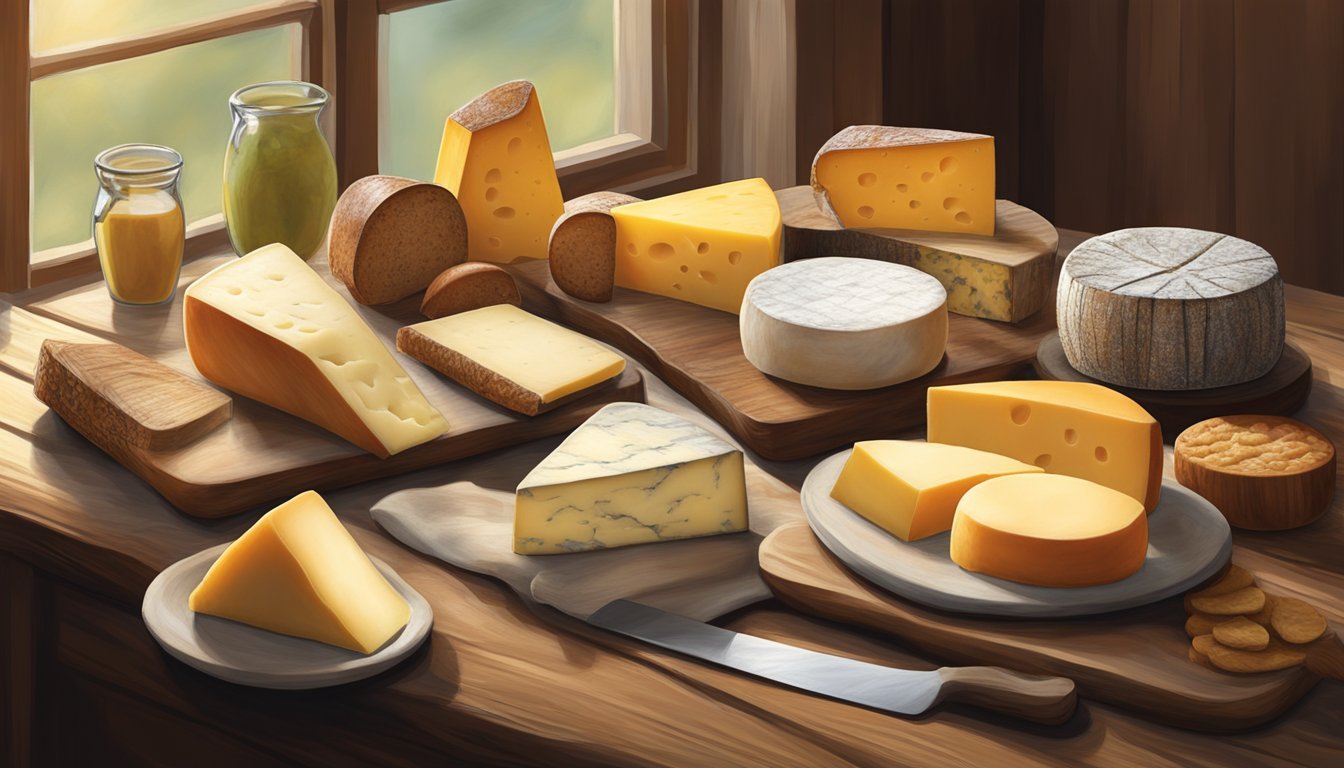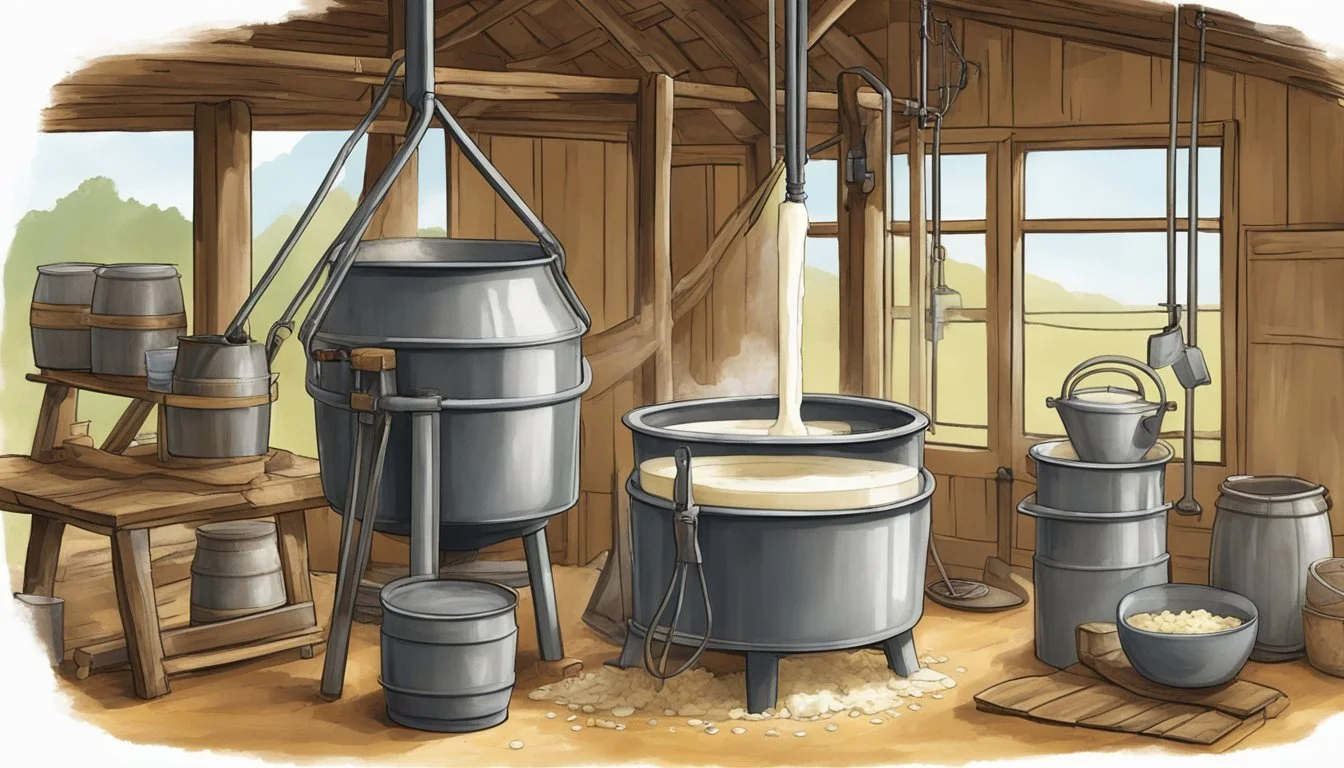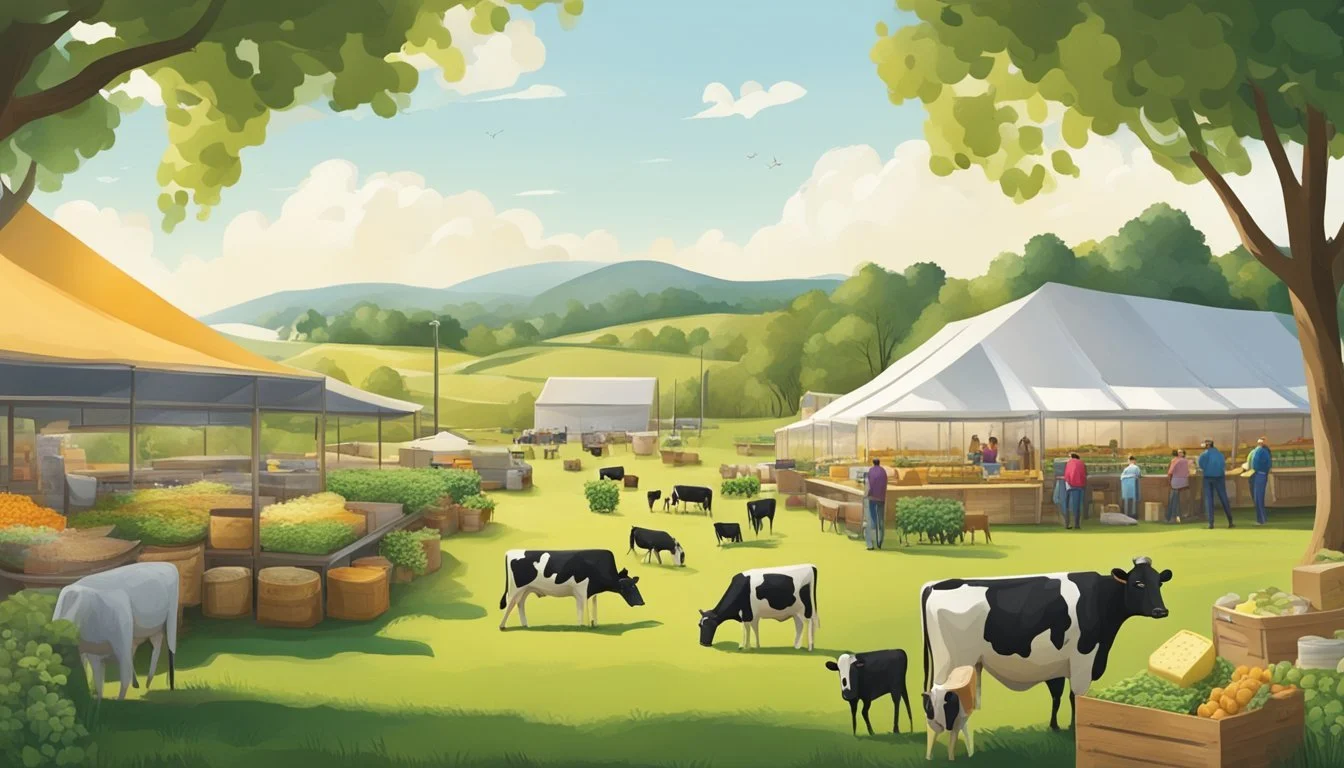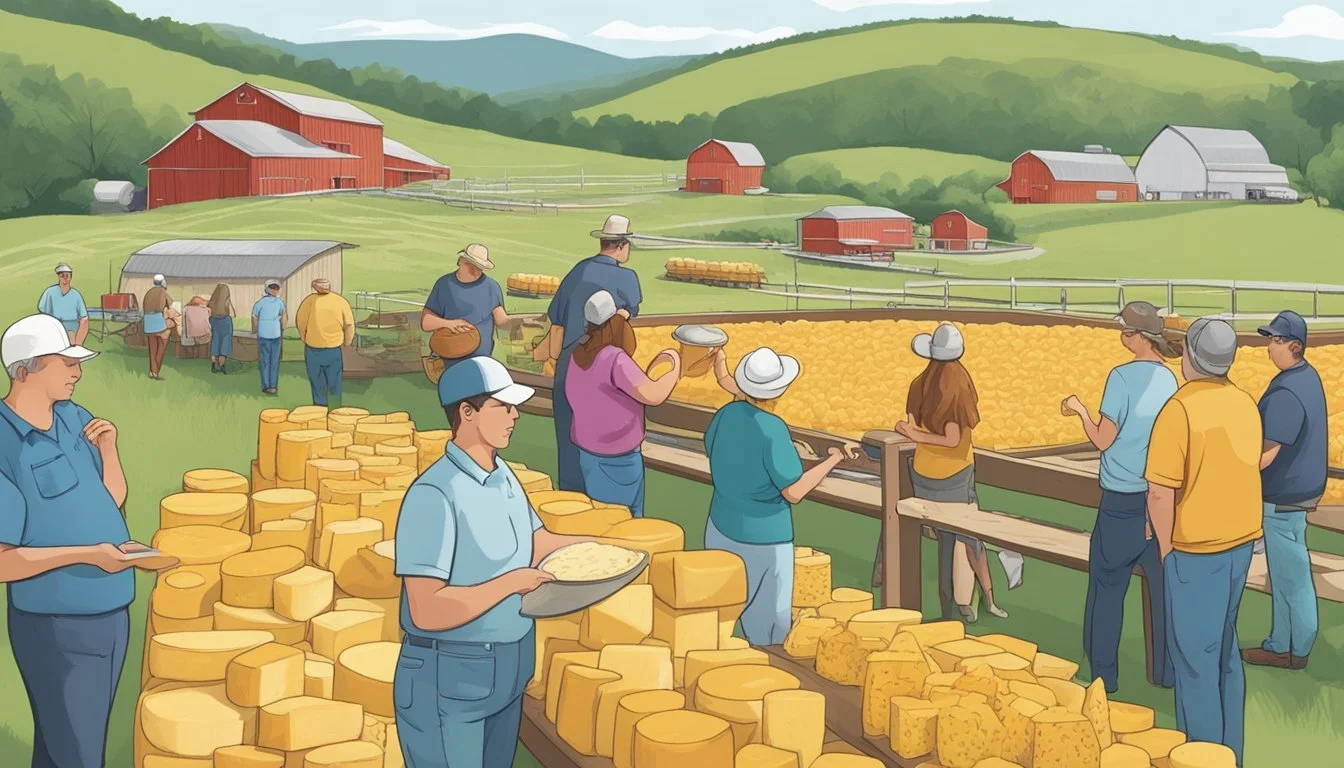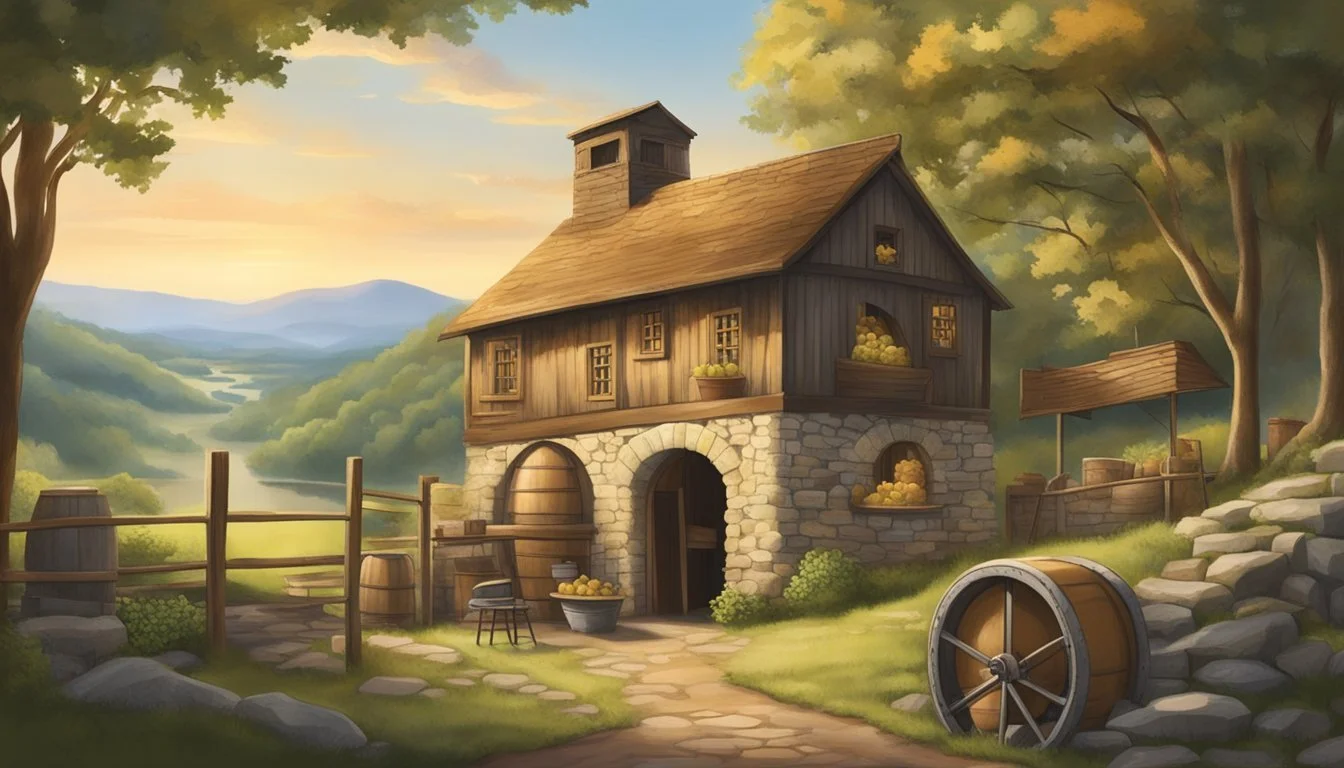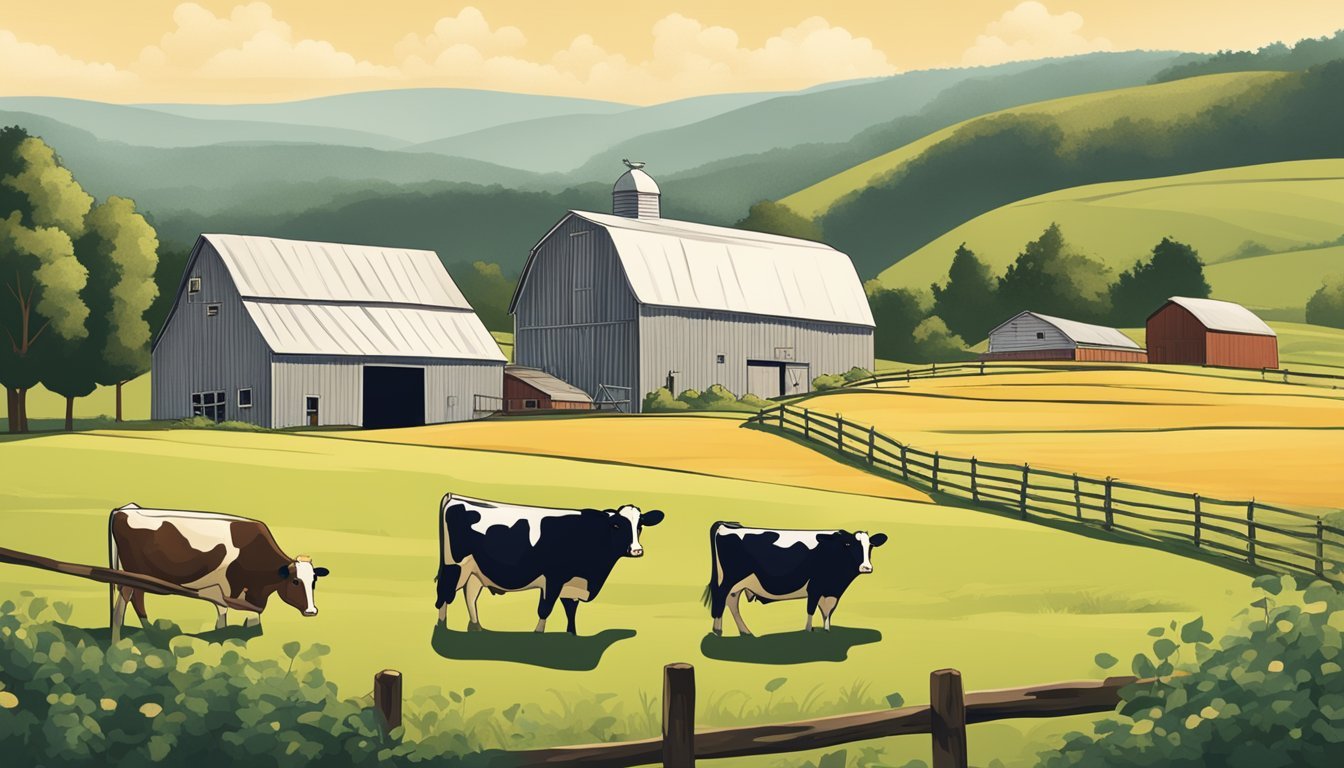West Virginia Artisan Cheese
A Guide to the Mountain State's Finest Cheesemakers
West Virginia harbors a rich tradition of artisan cheese (how long does cheese last?)-making, a craft that has gained increasing appreciation within the state's culinary landscape. Local artisans, often working with small dairy herds, are creating a variety of high-quality cheeses (What wine goes well with cheese?) that reflect the unique terroir of the Appalachian region. The dedication to traditional cheese-making methods, coupled with a focus on locally sourced milk, contributes to the distinct flavors and textures that characterize West Virginia's artisan cheeses.
The state boasts several cheese shops and creameries that have garnered attention for their handcrafted products. Among them is the Fleur de Lis Cheese Shop in Berkeley Springs, known for its fine selection of artisan meats and cheeses. Such establishments often provide a personalized experience, offering custom selections and subscriptions to their patrons who are looking to savor the best of what these local cheese artisans have to offer.
Artisanal cheese production in West Virginia also serves as a draw for culinary tourism. Aficionados of fine cheeses can embark on a journey to discover the various creameries that dot the rolling hills and valleys of the state. Each creamery has its unique story, cheese varieties, and production techniques, inviting visitors to indulge in the art of cheese tasting while experiencing the warm hospitality for which West Virginia is known.
History of West Virginia Artisan Cheese
West Virginia's artisan cheese history is interwoven with its Appalachian heritage, embodying a tradition of cheesemaking that has adapted and endured through the years.
Influence of Appalachian Culture
The Appalachian culture in West Virginia has long influenced the state's artisan cheesemaking. Cheesemakers drew inspiration from the terrain and climate of Appalachia, utilizing the resources at hand to develop their craft. Traditionally, these cheesemakers relied heavily on the rich biodiversity of West Virginia's mountains, with an emphasis on foraging and self-sufficiency. The community's connection with the land infused their dairy practices with a unique regional character, leading to the creation of cheeses that reflected the essence of Appalachia.
Early Cheesemaking in the Region
Cheesemaking in West Virginia began with early settlers who applied old-world techniques to local conditions. In this part of the United States, these pioneers often operated small family farms, where cheesemaking developed as a means to preserve excess milk. They lacked modern amenities and constructed simple structures for cheese aging, precursors to the contemporary cheese cave. Techniques and recipes passed down through generations, helping to shape the foundations of artisan cheese in the region today. While limited historical records document these early practices, it is clear that West Virginia cheesemaking was a craft honed out of necessity, isolation, and endurance.
Types of West Virginia Artisan Cheese
West Virginia's artisan cheese landscape is rich with a variety of options that cater to diverse palates. From classic cow milk cheeses to unique regional specialties, the state offers a robust selection crafted with care and tradition.
Cow Milk Cheeses
Among cow milk-based cheeses, Cheddar is a popular choice, known for its sharpness and depth of flavor that can range from mild to extra sharp. The state’s cheesemakers also produce Swiss cheese, easily identified by its signature holes and sweet, nutty taste.
Goat Cheese Varieties
Goat cheese in West Virginia is celebrated for its creamy texture and tangy taste. It's often found in the form of soft cheeses (What wine goes well with soft cheeses?) or aged varieties that include Feta, a brined curd cheese that adds a salty kick to dishes.
Sheep Milk and Mixed Milk Cheeses
Sheep milk cheeses are less common but cherished for their rich, buttery flavors. Mixed milk cheeses combine the qualities of cow, goat, and sheep’s milk, creating complex profiles that are both unique and traditional in their execution.
Unique Regional Varieties
Artisan cheesemakers in West Virginia take pride in crafting unique, regional varieties that reflect the local terroir and cheese-making heritage. These cheeses often incorporate local flavors and ingredients, offering a taste experience that is distinctly West Virginian.
Cheesemaking Process in West Virginia
The cheesemaking process in West Virginia marries time-honored traditions with a keen understanding of local ingredients and microbial cultures. Artisans approach cheese production with precision and a respect for the craft that echoes through the verdant pastures of the Appalachians.
Raw Milk Processing
Artisans begin with raw milk, often sourced from local farms, which lays the foundation for West Virginia's distinctive cheeses. Before it is transformed into cheese, the raw milk is first pasteurized or kept raw based on specific cheese recipes. Strands of beneficial bacteria - or culture - are then introduced to the milk. This begins the fermentation process, crucial to developing the cheese's flavor and texture.
Role of Culture and Aging
Cheese crafters in West Virginia carefully select the cultures that define each cheese’s unique character. After culturing, the milk coagulates and is cut, with the curds separated from the whey. The curds are then pressed into shapes and moved to an aging space. Aging is a transformative phase, where enzymes and microbes interact over weeks to years, refining the taste profiles, and intensifying the depth of flavors.
The Cheese Cave Environment
The final act in cheesemaking is the maturation within a cheese cave. The cave provides a controlled environment with specific humidity and temperature settings to foster ideal conditions for maturation. Artisans regularly tend to the cheese, turning and brushing to ensure even development. This controlled environment allows for the gradual melding of flavors inherent in the cream and cultures, culminating in cheeses with complex layers of taste and texture.
West Virginia Creameries and Cheesemakers
West Virginia's landscape is dotted with creameries and cheesemakers that produce a diverse array of handcrafted cheeses. Many of these establishments utilize traditional methods and prioritize locally sourced, high-quality milk.
Farmstead Creameries
Spring Gap Mountain Creamery
Location: Paw Paw, West Virginia
Specialty: Raw milk cheese from pasture-raised Jersey cows
Spring Gap Mountain Creamery, nestled in the mountains of Paw Paw, began its cheesemaking journey in 2010. The creamery is known for its raw milk cheeses, which are aged a minimum of 60 days and crafted from the milk of pasture-raised Jersey cows. Their products are a staple in several local stores and are also a hit at farmers markets on weekends.
Artisan Creameries
Meadow Creek Dairy
Location: Southwest Virginia
Notable: Grass-fed cow's milk used in cheesemaking
Meadow Creek Dairy stands as a family farm with a history dating back to 1988. This artisanal cheese producer focuses on full-flavored, healthy, and ecologically friendly cheese, a commitment displayed in their grass-fed cow's milk cheeses. (What wine goes well with cow's milk cheeses?) These cheeses reflect the terroir of the mountainous region and the expertise of the cheesemakers.
Shepherd's Whey Creamery
Address: 825 Jenny Wren Drive, Martinsburg, WV 25404
Contact: 304-283-5203
Located in Martinsburg, Shepherd's Whey Creamery invites cheese enthusiasts to tour their farm and learn about their cheesemaking process. This creamery offers an assortment of cheeses, which can be explored further by visiting their website or Facebook page.
Cheesemaker Profiles
Spring Gap Mountain Creamery
Cheesemaker: Not specified
Approach: Traditional methods, focus on raw milk cheeses
The cheesemakers at Spring Gap Mountain Creamery are experts in producing raw milk cheese using milk solely from pasture-raised Jersey cows. Attention to detail during the aging process of at least 60 days ensures a quality end product that's rich in flavor.
Meadow Creek Dairy
Cheesemaker: Not specified
Philosophy: Sustainable farming, full-flavored ecological cheeses
Meadow Creek Dairy's farming and cheesemaking craft shines through their products. The cheesemakers take pride in their commitment to sustainability and land stewardship, which is reflected in the distinctive taste of their artisanal cheeses made from grass-fed cows.
Culinary Scene and Cheese Pairing
West Virginia boasts a vibrant culinary scene, with artisan cheese playing a pivotal role. Restaurants across the state are increasingly incorporating local cheeses into their menus, showcasing the versatility and rich flavors that complement West Virginia's culinary heritage.
Uses in West Virginia Restaurants
Restaurants throughout West Virginia, including destinations in Charleston, take pride in their use of local artisan cheeses. Chefs are crafting dishes that feature these cheeses prominently, from appetizers like brie-filled beignets to main courses where cheese is incorporated seamlessly with other fresh, local ingredients. Artisan cheese finds its way into various traditional Southern dishes, offering a comforting blend of flavors that resonate with the region's food culture.
Appetizer: Brie-filled beignets
Main Course: Artisan cheese-topped local meats
Pairing with Local Foods and Wine
In pairing cheese with local foods, the aim is to create a symphony of flavors that both contrast and complement each other. A popular approach is to pair soft cheeses like fresh chèvre with tangy local jams and jellies, adding a pleasant acidity to the creamy texture.
Pairing cheese with wine from local vineyards is also a culinary delight. The natural affinity between cheese and wine is celebrated across West Virginia's dining establishments. They often recommend a crisp, refreshing white wine to accompany a rich, buttery cheese, balancing the palate.
Soft Cheese & Wine Pairing: Fresh chèvre with local wine
Hard Cheese Pairing: Aged Gouda with robust reds
The use of diary beyond cheese, in the form of locally churned butter and farm-fresh yogurt, elevates the culinary experience. Restaurants are integrating them into both traditional and inventive dishes, further enriching the state's unique food scene.
Economic Impact and Agriculture
In West Virginia, the artisan cheese sector contributes significantly to the local economy and employs sustainable agricultural practices amidst the rolling Appalachian landscape. The state's dairy farmers and cheesemakers are essential to the agricultural framework, with economic connections that stretch to farmers markets and beyond.
Contribution to Local Economy
West Virginia's agricultural sector reflects a commitment to promoting local economies. Artisan cheese production, notably, plays a role in this economic landscape. With agricultural cash receipts totaling approximately $693.97 million, the farming industry is a substantial contributor to the state's economy. Specific to dairy and cheese production:
Cattle and Calves: $176.169 million
Artisan cheese contributes to the diversity of products available at regional farmers markets, bolstering sales and local business growth.
Sustainable Agricultural Practices
Artisan cheese producers in West Virginia often incorporate sustainable agricultural practices into their operations, ensuring that the state's natural resources are utilized responsibly. Details from the industry include:
A trend toward fewer types of cheese produced, indicating a potential focus on quality and sustainability over quantity.
A decline in the production of cheese from unpasteurized milk has been observed, possibly reflecting heightened food safety standards or shifts in consumer preferences.
These practices are entwined with the Appalachian region's emphasis on preserving the natural beauty and resources, ensuring that agriculture continues to thrive while maintaining the ecological balance.
Cheese-Related Tourism and Education
West Virginia's artisan cheese scene offers diverse experiences, from visiting working creameries to engaging in educational workshops. There is a rich array of opportunities for tourists and locals alike to enhance their knowledge and appreciation for cheese-making.
Visiting West Virginia Creameries
Travelers can explore several creameries across West Virginia that showcase the state's cheese-making heritage. Shepherd's Whey Creamery in Martinsburg offers tours where visitors can learn about the cheese-making process firsthand and sample the creamery's offerings. For enthusiasts seeking an intimate glimpse into traditional cheese crafting, family-owned operations in Helvetia, W.Va., have revived the art of Swiss cheese making, providing a unique window into this culinary tradition.
Workshops and Cheese Tasting Events
West Virginia hosts a range of workshops and tasting events aimed at educating participants about the subtleties of artisanal cheese. These events often occur at local establishments or during food festivals, offering attendees the chance to taste a variety of cheeses and learn about flavor profiles, pairing, and cheese-making techniques from knowledgeable artisans.
Books and Educational Resources
For those who prefer self-guided learning, a selection of books provides valuable insights into the world of cheese. Berkeley Springs, a renowned spa town, has book stores that might carry literature on the subject, allowing visitors to delve into the history, types, and methods of cheese-making at their own pace. Access to these resources supports an ongoing education for both hobbyists and professionals interested in the craft of artisan cheese.
Challenges and Future of the Craft
In West Virginia, artisan cheese faces both hurdles and opportunities. Producers must navigate regulation while pushing the boundaries of innovation. These elements crucially determine the trajectory of the state's cheese craft.
Regulations and Artisan Advocacy
Artisan cheesemakers in West Virginia grapple with stringent regulations that can stifle production. They must comply with federal and state food safety laws, which are often more burdensome for small-scale operations. These producers sometimes seek advocacy groups for support, pushing for regulatory frameworks that better reflect the nuances of artisan cheese production. Efforts to balance food safety with the sustainability of the craft are ongoing.
Compliance with safety standards
Advocacy for fair regulations
Sustainable practice models
Innovation and Trends in Cheesemaking
West Virginia's cheesemakers are not simply contending with challenges; they are also part of a broader trend of innovation within the industry. They continue to craft a variety of cheeses, including fresh cheeses (What wine goes well with fresh cheeses?), which are appreciated for their delicate flavors and shorter aging times, offering a viable option for small-scale productions. Some are experimenting with washed rind cheeses, a technique that involves washing the cheese with solutions like saltwater or alcohol to favor specific bacteria growth and flavor profiles. Moreover, inspired by states like Vermont, known for its robust cheese industry, West Virginia producers are exploring new market opportunities to meet the growing demand for local, artisan products.
Fresh cheeses: Emphasis on simplicity and flavor.
Washed rind cheeses: Development of complex profiles.
Market trends: Learning from states like Vermont.
By staying informed and adaptive, West Virginia's cheesemakers aim to ensure the craft's resilience and growth in the face of these challenges and trends.
Conclusion
Artisan cheese making in West Virginia stands as a testament to traditional skill and local passion. In regions like Helvetia, the rekindling of Swiss cheese-making methods underscores a dedicated adherence to cultural heritage. The painstaking process, often conducted in home-based operations such as basement kitchens, retains a hands-on approach that's integral to the art.
The artisan cheese movement amplifies the importance of craftsmanship over mass production. Consumers have shown appreciation by favoring the unique characteristics of these cheeses—a reflection of the terroir and the cheesemaker's method. The economic implications are also noteworthy; as agricultural land increases in value, these artisanal endeavors offer a sustainable future for smaller farms.
Despite considerable challenges, artisan cheese producers in the state are driven by a love for their craft and a commitment to quality. Their cheeses are more than just products; they are stories of community, perseverance, and the blending of innovation with tradition. Such attributes have made West Virginia a notable destination for those in pursuit of authentic, handcrafted cheeses.
The industry's landscape is shaped by a dedicated clientele seeking products that reflect the creator's meticulous care. The success of West Virginia's artisan cheese is not an overnight phenomenon, but a result of continuous effort and an unyielding spirit within the community.

